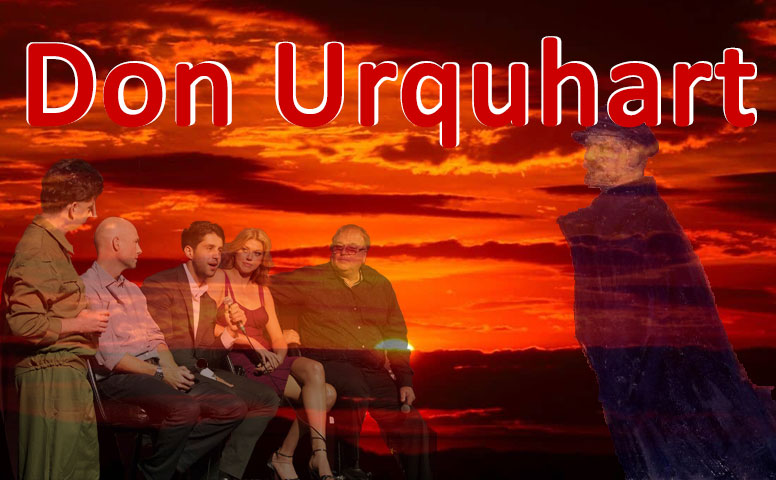7 June 2018
Diary of a Corbynista
The people assemble
by Don Urquhart
 31 May
31 May
Michael Gove promised us a brave new world of free schools being demanded by parents in areas ill-served by the “blob” of local authority bureaucracy. The reality is predictably quite different.
A study from the Sutton Trust social mobility charity and the National Foundation for Educational Research, says new free schools are likely to be created by expanding academy trusts.
https://www.suttontrust.com/research-paper/free-schools-analysis-nfer/
In reality, the free school programme has been a vehicle by which new schools are opened by academy chains.
Since 2015, almost four in five of the new free schools have been set up by academy trusts.
There needs to be more clarity about how they are funded and supervised and to make sure they represent “value for public money”.
Kevin Courtney, co-leader of the National Education Union, said the free school programme had so far cost £3.6bn, and the report showed the “notion of increased parental choice” had been “simply smoke and mirrors”.
The Department for Education said free schools were raising standards.
1 June
I am not really an activist. On Facebook and Twitter I am a lurker, reluctant to share my opinions on the basis that other people are unlikely to be interested in what I think. However vividly I feel the need for change, however exceptional my spellin,g even close friends and family express only a polite interest or irritation if indeed they bother to read anything I write or listen to me explaining the world.
Tomorrow I am hoping to change all that. I am attending an event organised by The People’s Assembly. It is a “preaching to the choir” affair to be addressed by many luminaries of a Corbynista persuasion. Most interesting is a stream –“Can we beat the mainstream media?” where one of the speakers is Kerry-Anne Mendoza whose online magazine , The Canary, appears to have an ever growing readership for a Corbynista viewpoint.
2 June
I attended the People’s Assembly Conference whose theme was:
How can we achieve an anti-austerity government?
http://www.thepeoplesassembly.org.uk/
In the Education session we were presented with Angela Rayner’s 10 key principles for a National Education Service.
It was much too wordy for any sort of mission statement or as a basis for an implementation plan. Apparently there is a consultation under way and we are invited to participate.
In the Housing session I was most impressed by the man who stood up to say that Sadiq Khan’s affordable housing policy would achieve nothing for the poor. There was unanimity about the need for a return to council housing.
In the Media session Steve Topple was impressive taking about The Canary and Ben Chacko, the editor of The Morning Star shared interesting perceptions on the difficulties of fighting the establishment MSM.
https://www.morningstaronline.co.uk/
What irritates me about these events are the contributors from the floor who talk endlessly of their own great achievements or just recite their prejudices ad infinitum. There were too many of these people at the event and when I got home things didn’t improve as I made the mistake of listening to Any Answers.
3 June
More thoughts on the People’s Assembly Conference.
I am not wired for events where everyone is supposed to agree in a Lovefest of unanimity.
That being said, I was massively impressed by the dedication to their worthy causes demonstrated by several of the platform speakers, contributors from the audience and people I talked to.
Two themes emerged for me:
You can’t achieve anything just with aspirations and good intentions. Hence, I suppose, New Labour, carefully crafted in the early 90’s to achieve power by presenting a less doctrinaire image.
Secondly, it was clear that there is no solution for education without housing being sorted and, come to that, mental health. I am reminded of the Scottish initiative to regard street violence as a health issue. There is a way through but I don’t know if anyone will find it or if those running the Labour Party are even looking for it.
4 June
“Community Experiences of Serious Organised Crime in Scotland” is a report commissioned by the Scottish government. It concludes that criminals are stepping in to take advantage of vulnerable people abandoned by society.
They “help” when there are welfare and benefits shortfalls, and offer career opportunities for young people otherwise condemned to unemployment, precarious work, and zero-hours contracts. They also help older people by paying their bedroom tax in exchange for use of the rooms for criminal activity. So poverty and neglect create a perfect breeding ground for crime.
Who knew?
5 June
At the GMB Union’s Congress in Brighton, the General Secretary, Tim Roache, presented the findings of an investigation by the Union and Corporate Watch into the accounts of privatised water companies. In particular he criticised the pay packets of the CEOs:
It is a national scandal that over the last five years England’s hard-pressed water customers have been forced to splash out £58 million through their bills to go into the pockets of just nine individuals.
Privatisation of the water industry has been a costly mistake and these eye-watering sums are further proof the water industry must be returned to public hands.
http://www.gmb.org.uk/newsroom/water-fat-cats
6 June
Speaking about the accelerating murder rate in London, Metropolitan Police Commissioner Cressida Dick told the Home Affairs Committee:
Of course austerity has probably had something to do with it, by which I mean, of course, the other services as well as the police.
But I would be naive to suggest that reduced numbers of officers on the street, for a whole variety of reasons, including – and I’m talking across the country here – reduced officer numbers overall, has had no impact.
So very gradually she is coming round to articulating the politically unpalatable but obvious.


